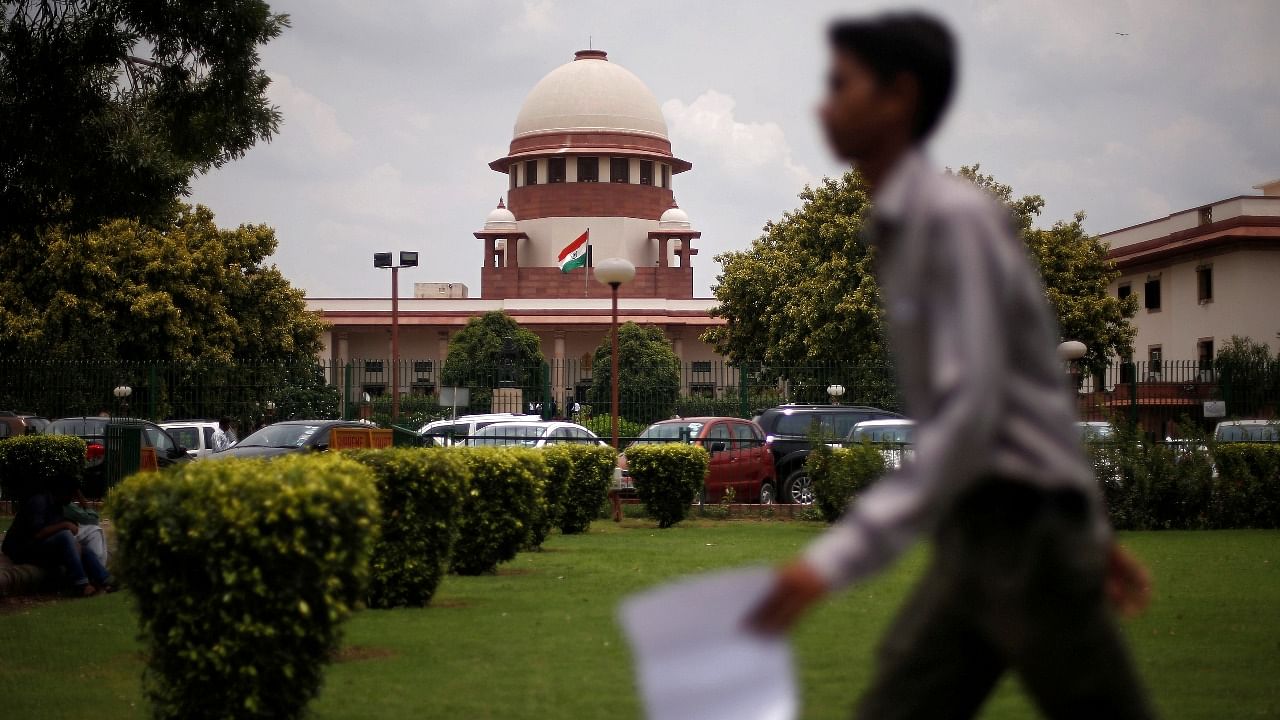
The Supreme Court on Tuesday told the Centre that it would not like to compromise with the security of the nation but wanted the competent authority to apprise it on charges related to illegal hacking of phones through Israel's Pegasus spyware.
The top court sought a response from the Centre on a batch of PILs for court-monitored independent probe into Pegasus snooping case, even though the Centre maintained it can't make public which software was used for interception of phones for security purposes.
"We do not want to compromise with security of this country or defence of nation. Here the issue is different, there are people alleging hacking of their phones. In case of civilians also rules permit interception, but only on permission by competent authority. What is the problem if that competent authority files an affidavit before us? We don't want you to say anything related to national security," the CJI told Solicitor General Tushar Mehta.
The bench issued a formal notice to the Union government in the matter. The court also said it would examine the Centre's proposal to form a technical panel of experts to look into all aspects of the matter and fixed the case for hearing after 10 days.
The Union government led by Mehta contended that several kinds of software are used by the security and military agencies to check anti-national and terrorist activities activities.
"No government will make public what software it is using to allow terror networks to modulate its systems and escape tracking," he said.
Responding to the court's observation, he submitted that the Centre was ready to place all facts about surveillance before a expert technical committee which can give a report to the court.
With regard to the court's query if the Centre was ready to file a detailed affidavit, Mehta said that the response (two-page affidavit) filed on Monday sufficiently responded to the concerns raised by the petitioners journalist N Ram and others.
He said the government does not want to file any additional affidavit on the Pegasus issue, as national security aspects are involved.
"If the government is disclosing in public that it is not using a particular interception software, the terrorist organizations will take advantage of that information to change their communication settings," Mehta said.
"I wish to make it clear, it is not my case that I don’t wish to divulge. (My) Limited point is let me say that before a committee of experts," he added.
Senior advocate Kapil Sibal and others, appearing for petitioners, said security of the state is as important to us as to the government. "We don’t want them to give any information as to security of the State. He must reply if pegasus as a technology was used," he said.
"We will discuss what needs to be done, if committee of experts needs to be made, or some other committee," the bench said.
On July 18, an international investigative consortium reported that many Indian ministers, politicians, activists, businessmen and journalists were among the 50,000 numbers that were potentially targeted by the Israeli company NSO Group’s phone hacking software.
A batch of petitions including those by advocate M L Sharma, CPI(M) MP John Brittas, N Ram, former IIM professor Jagdeep Chokkar, Narendra Mishra, Paranjoy Guha Thakurta, Rupesh Kumar Singh, S N M Abdi and Editors Guild of India came up for hearing before the court.
